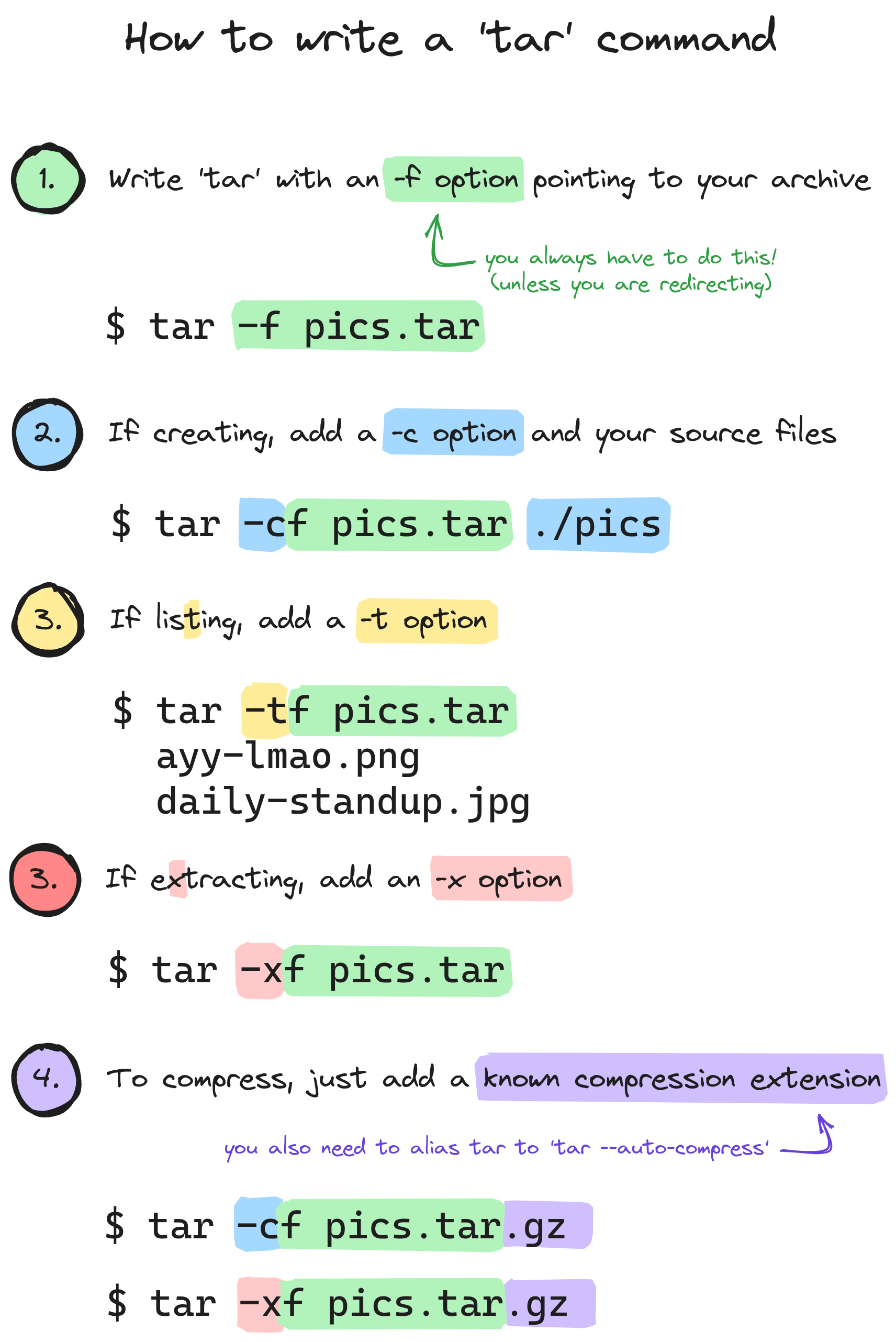Or -I 'compress-command' -cf ... if not supported.
Linux
From Wikipedia, the free encyclopedia
Linux is a family of open source Unix-like operating systems based on the Linux kernel, an operating system kernel first released on September 17, 1991 by Linus Torvalds. Linux is typically packaged in a Linux distribution (or distro for short).
Distributions include the Linux kernel and supporting system software and libraries, many of which are provided by the GNU Project. Many Linux distributions use the word "Linux" in their name, but the Free Software Foundation uses the name GNU/Linux to emphasize the importance of GNU software, causing some controversy.
Rules
- Posts must be relevant to operating systems running the Linux kernel. GNU/Linux or otherwise.
- No misinformation
- No NSFW content
- No hate speech, bigotry, etc
Related Communities
Community icon by Alpár-Etele Méder, licensed under CC BY 3.0
Damn, I'm using the "tape archiver" (this is what tar means) since I installed HPUX8 in the 90s, from tape, yes...
Nowaday I have ChatGPT spew me command. I usually do a quick validation before running. Nevertheless, most of simple operations are correct so I don't need to.
I then note the command to my persional gist cheatsheet. Next time, since the command is "cached", I'll be able to be productive quicker.
So much better than googling.
That looks really cool. And finally a guide that knows -z is not necessary all the time.
OMG always assumed that -c always stands for "compress" and I always placed .gz at the end to remember to place -x when extracting
daily-standup.png eh... :)
Who is taking pics of the standup.. :)
So a serious question from someone who can't remember console commands ever despite using them constantly.
Why are so many linux CLI commands set up with defaults that no one ever uses? Like if you pretty much always need -f, -v is often used, and --auto-compress is needed to recognize type by extension. Why aren't those the defaults to just using tar?
A lot of applications I find are like this too, they don't come with defaults that work or that anyone would ever use.
Check out atool
Don't you have to specify the compression algorithm when extracting? I always use tar -xzf for gzip files and if I remove -z it just fails.
I've been using only xf for a long time now. Don't remember ever getting an error from it in the last years. Maybe tar can now check the magic number or something to figure out what the format is?
Do more like this (・へ・)
great, now how do I use it together with the 'feather' command?
